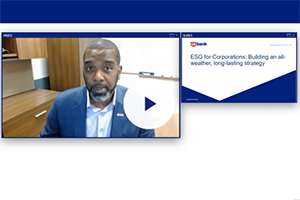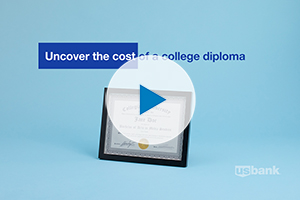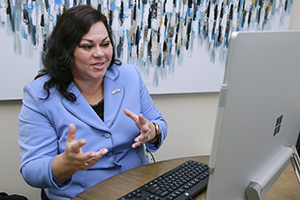
Rule 18f-4 overview: Regulatory framework changes for derivatives

Rule 18f-4: The limited use exception

Rule 18f-4: An in-depth look at the derivative risk management program and value-at-risk

Commercial real estate in 2020: Keeping up with the pace of change

The startup scene in Reno: The story of Breadware

The startup scene in Reno: Emerging tech leads the way

Interval funds find growing popularity

Finance or operating lease? Deciphering the legalese of equipment finance

Common pitfalls to avoid in the equipment financing process

Buying or leasing? Questions to ask before signing a contract

ESG-focused investing: A closer look at the disclosure regulation

Maximizing your infrastructure finance project with a full suite trustee and agent

Programme debt Q&A: U.S. issuers entering the European market

Luxembourg's thriving private debt market

Integrating regulated and unregulated debt investment vehicles

3 questions to ask your equity, quant and CTA fund administrator

Top 3 considerations when selecting an IPA partner

How to maximise your infrastructure finance project

Private equity and the full-service administrator

The secret to successful service provider integration

Insource or outsource? 10 considerations

Webinar: ESG for Corporations: Building an all-weather, long-lasting strategy

Evaluating interest rate risk creating risk management strategy

Restaurant survey shows changing customer payment preferences

Unexpected cost savings may be hiding in your payment strategy

COVID-19 safety recommendations: Are you ready to reopen?

Safeguarding the payment experience through contactless

OCIO: An expanding trend in the investment industry

How institutional investors can meet demand for ESG investing

ABCs of ARP: Answers to American Rescue Plan questions for counties

5 steps to take before transitioning your business

How to sell your business without emotions getting in the way

10 tips on how to run a successful family business

How entrepreneurs can plan for what matters most

How I did it: Turned my side hustle into a full-time job

Talent acquisition 101: Building a small business dream team

Make your business legit

How to test new business ideas

How to establish your business credit score

How to get started creating your business plan

How to redefine challenges with business collaboration

Costs to consider when starting a business

The costs of hiring a new employee

How to expand your business: Does a new location make sense?

How to choose the right business savings account

8 Ways for small business owners to manage their cash flow

Does your side business need a separate bank account?

How to accept credit cards online

Investing in capital expenditures: What to discuss with key partners

How to build a content team

Multigenerational household financial planning strategies

How to manage money tips

LGBTQ+ financial planning tips

5 financial goals for the new year

Year-end financial checklist

How to track your spending patterns

How to manage your money: 6 steps to take

Key components of a financial plan

Should rising interest rates change your financial priorities?

Do I need a financial advisor?

How to manage your finances when you're self-employed

Avoid these 6 common mistakes investors make

LGBTQ+ estate planning considerations

Good money habits: 6 common money mistakes to avoid

Reviewing your beneficiaries: A 5-step guide

Good debt vs. bad debt: Know the difference

4 reasons estate planning is important

How to talk about money with your family

Financial steps to take after the death of a spouse

6 tips for trust fund distribution to beneficiaries

How to protect your digital assets in your estate plan

Retirement expectations quiz

Estate planning documents: Living trusts vs. will vs. living will

4 tips to help you save for retirement in your 20s

How to build wealth at any age

Retirement income planning: 4 steps to take

5 unexpected retirement expenses

How to retire happy

Retirement planning in the gig economy

Key milestone ages as you near and start retirement

Retirement planning strategies for dual-income families

Healthcare costs in retirement: Are you prepared?

Preparing for retirement: 8 steps to take

LGBTQ+ retirement planning: What you need to know

The connection between your health and financial well-being

7 things to know about long-term care insurance

8 steps to choosing a health insurance plan

Is a Health Savings Account missing from your retirement plan?

3 types of insurance you shouldn’t ignore

What is Medicare? Understanding your coverage options

Transitioning from the military to the civilian workforce

Achieving their dreams through a pre-apprenticeship construction program

Working after retirement: Factors to consider

How I did it: Switched career paths by taking an unexpected pivot

5 tips for being a great board member

How I did it: Transitioned from the military to a private sector career

How I did it: Joined a board of directors

4 steps to finding a charity to support

7 year-end tax planning tips

Start a Roth IRA for kids

A guide to tax diversification and investing

Bull and bear markets: What do they mean for you?

Investing myths: Separating fact from fiction in investing

Should I itemize my taxes?

Economic forecast for 2023: 3 things to know

How much money do I need to start investing?

7 diversification strategies for your investment portfolio

What are alternative investments?

Effects of inflation on investments

What Is a 401(k)?

4 times to consider rebalancing your portfolio

5 questions to help you determine your investment risk tolerance

4 major asset classes explained

Do your investments match your financial goals?

Understanding yield vs. return

What type of investor are you?

How to start investing to build wealth

Investment strategies by age

Saving vs. investing: What's the difference?

4 strategies for coping with market volatility

Can fantasy football make you a better investor?

How do interest rates affect investments?

What types of agency accounts are available for investors?

A beginner's guide to investing

3 steps to prepare for a medical emergency

Tips for navigating a medical hardship when you’re unable to work

How to Adult: 5 ways to track your spending

How to plan and save for adoption and in vitro fertility treatment costs

Preparing for adoption and IVF

11 essential things to do before baby comes

Closing on a house checklist for buyers

Webinar: Uncover the cost: Starting a family

Family planning for the LGBTQ+ community

Checklist: 10 questions to ask your home inspector

What you need to know as the executor of an estate

Checklist: financial recovery after a natural disaster

What documents do you need after a loved one dies?

Resources for managing financial matters after an unexpected death

Student checklist: Preparing for college

College budgeting: When to save and splurge

Webinar: Uncover the cost: College diploma

How to gain financial independence from your parents

How to save money in college: easy ways to spend less

Co-signing 101: Applying for a loan with co-borrower

How I did it: Paid off student loans

Practical money skills and financial tips for college students

5 things to know before accepting a first job offer

How to build credit as a student

Webinar: Bank Notes: College cost comparison

The A to Z’s of college loan terms

Annual insurance review checklist

From LLC to S-corp: Choosing a small business entity

How you can prevent identity theft

Tips for handling rising costs from an Operation HOPE Financial Wellbeing coach

3 financial tools to help automate your finances

3 ways to keep costs down at the grocery store (and make meal planning fun)

5 tips for creating (and sticking to) a holiday budget

Is raising backyard chickens a good idea financially?

Financial checklist: Preparing for military deployment

Should you buy now, pay later?

6 pandemic money habits to keep for the long term

Stay committed to your goals by creating positive habits

5 things to consider when deciding to take an unplanned trip

Friction: How it can help achieve money goals

Working with an accountability partner can help you reach your goals

The mobile app to download before summer vacation

Webinar: 5 myths about emergency funds

How to decide when to shop local and when to shop online

How I kicked my online shopping habit and got my spending under control

Growing your savings by going on a ‘money hunt’

Webinar: Smart habits and behaviors to achieve financial wellness

A who’s who at your local bank

Your 4-step guide to financial planning

5 myths about emergency funds

How to stay financially focused in the face of economic uncertainty

How I did it: Learned to budget as a single mom

What military service taught me about money management

Does your savings plan match your lifestyle?

Webinar: Common budget mistakes (and how to avoid them)

Webinar: Uncover the cost: Wedding

Webinar: Uncover the cost: International trip

Adulting 101: How to make a budget plan

How having savings gives you peace of mind

Allowance basics for parents and kids

What’s your financial IQ? Game-night edition

Personal loans first-timer's guide: 7 questions to ask

Are savings bonds still a thing?

Tips to overcome three common savings hurdles

3 awkward situations Zelle can help avoid

Helpful tips for safe and smart charitable giving

Webinar: Mindset Matters: How to practice mindful spending

How to save money while helping the environment

You can take these 18 budgeting tips straight to the bank

Things to know about the Servicemembers Civil Relief Act

How to manage money in the military: A veteran weighs in

How can I help my student manage money?

U.S. Bank asks: Do you know what an overdraft is?

Stay on budget — and on the go — with a mobile banking app

U.S. Bank asks: Do you know your finances?

Do you and your fiancé have compatible financial goals?

3 tips for saving money easily

How to best handle unexpected expenses

Save time and money with automatic bill pay

U.S. Bank asks: Transitioning out of college life? What’s next?

Which is better: Combining bank accounts before marriage — or after?

Personal finance for teens can empower your child

Don’t underestimate the importance of balancing your checking account

9 simple ways to save

Is it time to get a shared bank account with your partner?

How to save for a wedding

It's possible: 7 tips for breaking the spending cycle

Here’s how to create a budget for yourself

Multiple accounts can make it easier to follow a monthly budget

7 steps: How couples and single parents can prepare for child care costs

Checking and savings smarts: Make your accounts work harder for you

5 reasons why couples may have separate bank accounts

Dear Money Mentor: How do I set and track financial goals?

Tips for working in the gig economy

How compound interest works

5 tips for parents opening a bank account for kids

Lost job finance tips: What to do when you lose your job

Myths vs. facts about savings account interest rates

Tips to raise financially healthy kids at every age

Money management guide to financial independence

Money Moments: 8 dos and don’ts for saving money in your 30s

5 tips to use your credit card wisely and steer clear of debt

30-day adulting challenge: Financial wellness tasks to complete in a month

Money Moments: 3 smart financial strategies when caring for aging parents

7 financial questions to consider when changing jobs

First-timer’s guide to savings account alternatives

Money Moments: How to manage your finances after a divorce

What’s in your emergency fund?

Travel for less: Smart (not cheap) ways to spend less on your next trip

Certificates of deposit: How they work to grow your money

What I learned from my mom about money

How to stop living paycheck to paycheck post-pay increase

Practical money tips we've learned from our dads

How to cut mindless spending: real tips from real people

6 ways to spring clean your finances and save money year-round

What you need to know about renting

Dear Money Mentor: How do I pick a savings or checking account?

What financial advice would you give your younger self?

Bank from home with these digital features

Understanding guardianship and power of attorney in banking

Building a financial legacy for your family and community

How to increase your savings

Financial gifts can be a valuable – and fun – choice for the holidays

It’s time for a fresh start: A new way of thinking

How to open and invest in a 529 plan

Is a home equity loan for college the right choice for your student

Your financial aid guide: What are your options?

Parent checklist: Preparing for college

How grandparents can contribute to college funds instead of buying gifts

Using 529 plans for K-12 tuition

How to talk to your lender about debt

Which debt management technique is right for you?

How to apply for federal student aid through the FAFSA

Be careful when taking out student loans

Everything you need to know about consolidating debts

Consolidating debts: Pros and cons to keep in mind

5 tips to use your credit card wisely and steer clear of debt

How to use credit cards wisely for a vacation budget

Know your debt-to-income ratio

How to use debt to build wealth

Understanding the true cost of borrowing: What is amortization, and why does it matter?

How to use your unexpected windfall to reach financial goals

7 steps to keep your personal and business finances separate

For today's homebuyers, time and money are everything

Should you buy a house that’s still under construction?

Crypto + Homebuying: Impacts on the real estate market

House Hacks: How buying an investment property worked as my first home

Your guide to breaking the rental cycle

Webinar: Uncover the cost: Building a home

Military homeownership: Your guide to resources, financing and more

Spring cleaning checklist for your home: 5 budget-boosting tasks

Saving for a down payment: Where should I keep my money?

How I did it: My house remodel

How I did it: Bought a home without a 20 percent down payment

Home buying myths: Realities of owning a home

Are professional movers worth the cost?

Money Moments: Tips for selling your home

4 ways to free up your budget (and your life) with a smaller home

10 ways to increase your home’s curb appeal

10 questions to ask when hiring a contractor

Beyond the mortgage: Other costs for homeowners

How you can take advantage of low mortgage rates

5 things to avoid that can devalue your home

Webinar: Uncover the cost: Home renovation

Improving your credit score: Truth and myths revealed

Credit: Do you understand it?

How to build and maintain a solid credit history and score

Car shopping: Buying versus leasing your next vehicle

How I did it: Deciding whether to buy an RV

U.S. Bank asks: What do you know about credit?

How to improve your credit score

How to winterize your vehicle

Questions to ask before buying a car

What you should know about buying a car



